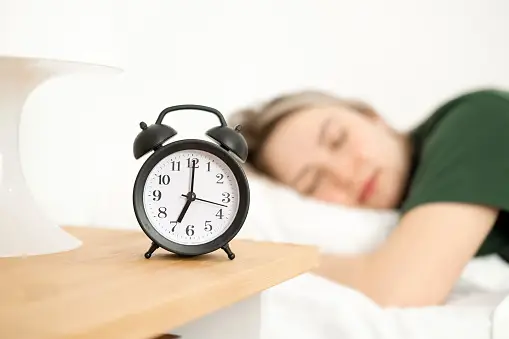Understanding the intricate relationship between circadian rhythms and sleep disorders requires delving into the biological mechanisms governing our internal clocks, and how disruptions in these processes can lead to various sleep-related issues. Circadian rhythms are 24-hour cycles that are part of the body’s internal clock, running in the background to carry out essential functions and processes. One of the most important and well-known of these functions is the sleep-wake cycle.
Page Contents
Circadian Rhythms: The Body’s Internal Timekeeper
Circadian rhythms are driven by the circadian clock, which is located in the suprachiasmatic nucleus (SCN) of the brain’s hypothalamus. This internal timekeeper is influenced by environmental cues, notably light, which helps align the body’s functions with the day-night cycle. Light exposure to the eyes is communicated to the SCN, which then adjusts the production of various hormones, including melatonin, a key hormone that promotes sleep and regulates sleep timing.
Sleep Disorders and Circadian Rhythm Disruption
Sleep disorders can arise from misalignments between the body’s internal circadian rhythms and the external environment or from dysfunction within the circadian system itself. These disorders are broadly categorized into intrinsic (internal) and extrinsic (external) factors affecting sleep. Understanding the relationship between circadian rhythms and sleep disorders involves examining various conditions, including insomnia, delayed sleep phase syndrome (DSPS), advanced sleep phase syndrome (ASPS), non-24-hour sleep-wake disorder, and shift work disorder.
1. Insomnia
Insomnia, characterized by difficulty falling asleep or staying asleep, can be linked to circadian rhythm disorders when the body’s internal clock is out of sync with desired sleep times. This misalignment can result from inconsistent sleep schedules, excessive light exposure at night, or other factors disrupting the natural circadian rhythm.
2. Delayed Sleep Phase Syndrome (DSPS)
DSPS is a disorder where the individual’s sleep-wake cycle is delayed by two or more hours beyond what is considered a conventional bedtime. This delay can cause difficulties in waking up at desired times for work or school, often leading to insufficient sleep and daytime sleepiness. The disorder is thought to be caused by a combination of genetic, environmental, and behavioral factors affecting the circadian clock.
3. Advanced Sleep Phase Syndrome (ASPS)
Conversely, ASPS is characterized by an advanced sleep phase, with individuals feeling the need to go to sleep early in the evening and wake up very early in the morning. This condition is often seen in older adults and can result from changes in the circadian system with age.
4. Non-24-Hour Sleep-Wake Disorder
This disorder is most commonly found in individuals who are totally blind, as the absence of light cues fails to reset their circadian clock, leading to a sleep-wake cycle that shifts later each day. This results in a mismatch between their internal rhythms and the 24-hour day-night cycle, causing significant disruptions in sleep patterns and daytime functioning.
5. Shift Work Disorder
Shift work disorder occurs in individuals who work nontraditional hours, such as overnight shifts, which conflict with the body’s natural circadian rhythms. Exposure to light at night can disrupt melatonin production and shift the body’s internal clock, making it difficult to sleep during the day and remain alert at night.
Treatment and Management
Managing circadian rhythm-related sleep disorders often involves strategies aimed at realigning the body’s internal clock with the external environment or adapting the environment to better suit the individual’s circadian rhythms. Common approaches include light therapy, melatonin supplementation, maintaining a consistent sleep schedule, and, in some cases, chronotherapy, which involves gradually shifting sleep times. Cognitive-behavioral therapy (CBT) for insomnia is also an effective treatment for sleep disorders, focusing on changing behaviors and thoughts that contribute to sleep problems.
Conclusion
The relationship between circadian rhythms and sleep disorders is complex, with disruptions in the body’s internal clock leading to various types of sleep disturbances. Understanding this relationship is crucial for developing effective treatment strategies that can help realign our circadian rhythms with our lifestyles, thereby improving sleep quality and overall health. As research in this field continues to advance, it is hoped that more targeted and effective treatments for circadian rhythm-related sleep disorders will be developed, offering relief to those affected by these conditions.
click here to visit website

